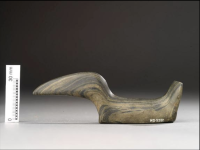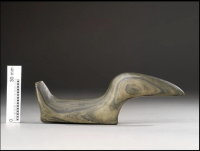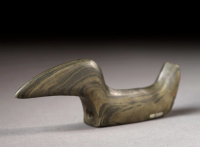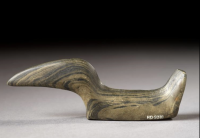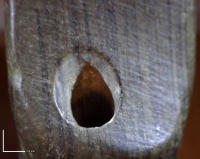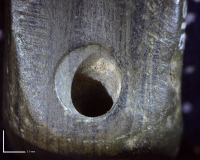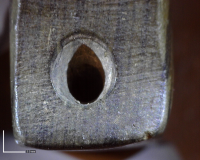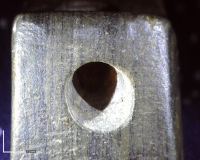Bar-type Birdstone
Bar-type Birdstone
Bar-type Birdstone
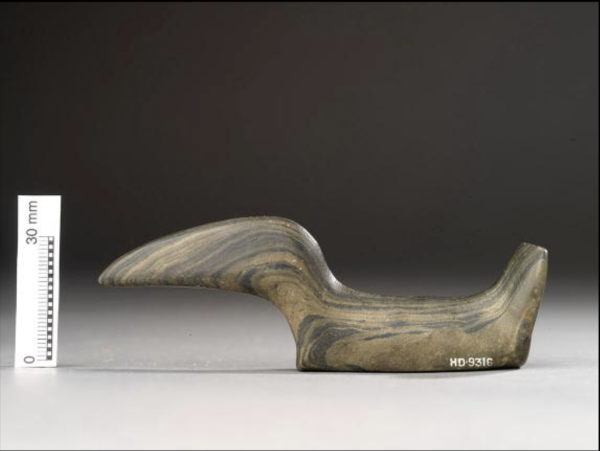
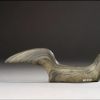
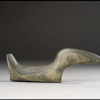
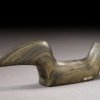
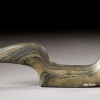
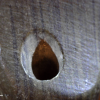
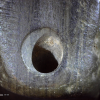
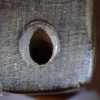
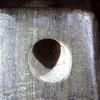
This ancestor has an elongated head that has a pointed beak and resembles a bird through its ridged back and block fan tail shape. This ancestor has a flat base that is perforated at both ends and has a completely smoothened surface. On the right side of its face, an illusory eye is created by concentric laminations in the stone. This ancestor is sandy and light and dark gray in colour, which is in a laminated pattern and spreads across its whole body. Currently, this ancestor resides at the Royal Ontario Museum in Toronto, Ontario, Canada.
The term birdstone is a legacy of earlier archaeological work and does not consider the full variety in shape and functionality these relatives may have had within Indigenous communities. We invite Great Lakes nations to help us improve our understanding of how to identify and name these relatives. Birdstones have been found and collected from various contexts including hearths inside houses, in fields, and burial contexts. To the best of our knowledge, none of the birdstones in GRASAC’s Knowledge Sharing Platform come from burial contexts.
It is difficult to know the cultural origin of this ancestor due to the unknown context of its collection, its age and the fact that birdstones have been found throughout the American northeast. It may have travelled long distances.
Information for this entry comes from the ROM's catalogue alongside Dr. Tiziana Gallo's research on Birdstones.
Read More About This Relative
Ground stone, meta-rhythmite.
Weight: 61.14 g
Provenance
Royal Ontario Museum records
Tiziana Gallo & Craig N. Cipolla (07 Nov 2023): Three Little Birds: Reassembling Typological Thought, Norwegian Archaeological Review, DOI: 10.1080/00293652.2023.2261945
About This GRASAC Record
Unknown Maker. "Bar-type birdstone". GKS Number 59145, located at the Royal Ontario Museum, catalogue number HD9316
This record was created by Natasha Fares and Kara Annett on March 25th, 2023, and augmented again by Natasha Fares in January 2024. Information for this entry comes from the ROM's catalogue alongside Dr. Tiziana Gallo's research on Birdstones.
 Knowledge Sharing Platform
Knowledge Sharing Platform

